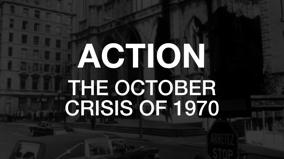New release
Coming
None
Bitter Medicine, Part One: The Birth of Medicare
1983
27 min
Leaving soon
Part one of a 2-part documentary examining Canada's national health insurance system, from its conception on the Canadian Prairies in the early part of the 20th century to its present state of crisis. This first part traces the events leading to July 2, 1962, the day on which Medicare was launched in Saskatchewan. The doctors reacted to the plan by declaring a general strike. The film recreates this stormy chapter of history through film and television archives and personal testimonies, particularly those of former Saskatchewan premier Tommy Douglas and Chief Justice Emmett Hall.

Details
Part one of a 2-part documentary examining Canada's national health insurance system, from its conception on the Canadian Prairies in the early part of the 20th century to its present state of crisis. This first part traces the events leading to July 2, 1962, the day on which Medicare was launched in Saskatchewan. The doctors reacted to the plan by declaring a general strike. The film recreates this stormy chapter of history through film and television archives and personal testimonies, particularly those of former Saskatchewan premier Tommy Douglas and Chief Justice Emmett Hall.
-
directorTom Shandel
-
scriptTom Shandel
-
producerGeorge JohnsonTom Shandel
-
executive producerJohn Taylor
-
associate producerPenny Gurstein
-
photographyKirk Tougas
-
soundRay MisskeyMike OldfieldNorm Rosen
-
editingBarbara Evans
-
re-recordingPaul Sharpe
-
narratorAnn Petrie
-
musicJean Piché











